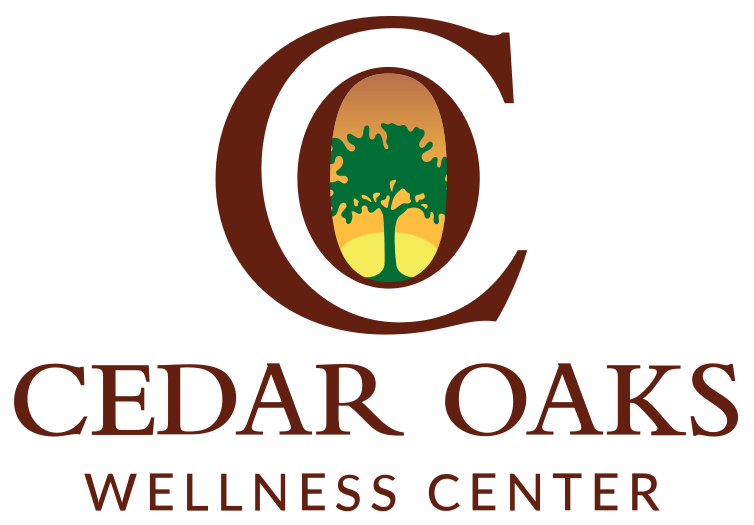What Are the 12 Steps in Recovery?
Alcohol addiction is a serious health issue affecting adults worldwide. Though this is a global issue, many people recover from it. According to NPR, 75% of people with addiction survive and go on to live their normal lives. One can recover from addiction in many ways, and one of the most effective ways is going through 12-step recovery programs. These programs have long existed and sound mysterious at times, especially to those who haven’t attended any of the meetings. Is the 12-step program effective, and what are the 12 steps? We shall discuss these in this post.
Cedar Oaks Wellness is a Cincinnati drug and alcohol rehab center that puts you and your recovery first. Whether looking to implement the 12 steps into your recovery, or if you prefer secular treatment, Cedar Oaks Wellness can help. Contact us today to learn more.
What is a 12-Step Program?
A 12-step program is a self-help program used to treat addictions and other mental behaviors. Alcoholics Anonymous developed the initial program in 1930 to help struggling addicts. Since then, various addiction support groups, such as Narcotics Anonymous (NA), Gamblers Anonymous (GA), and Overeaters Anonymous (OA), have adopted it and even modified it accordingly to treat addicts.
The program is based on guidelines and principles and involves group meetings where people walk through 12 steps to sobriety. These steps are designed to help individuals identify the underlying causes of their addiction and address them. This includes taking responsibility for their actions and making amends with those they may have hurt along the way.
Bill W, the founder of Alcoholics Anonymous, clarified that the program was effective because people helped themselves by helping others. The founder, addicted to alcohol, realized the only thing that kept him sober was assisting others to stay sober. He and his friend Bob Smith recognized the importance of this and decided to share and card for other alcoholics. This was how AA began, the basis of the 12-steps program.
Although the original program was for alcoholics, it has been adapted for compulsive behavior, such as drug and gambling addiction.
What Are the 12 Steps?
Below are the 12 steps in the 12-step program:
- Alcoholics must admit that they are powerless over addiction and that their lives have become unmanageable.
- They must believe that a Power greater than themselves could restore them to sanity.
- They must decide to turn their will and lives over to the care of God.
- They must make a searching and fearless moral inventory of themselves.
- Addicts must admit to God, themselves, and another human being the exact nature of their wrongs.
- They must be entirely ready to have God remove all character defects.
- They must humbly ask Him to remove their shortcomings.
- They should list all persons they have harmed and become willing to make amends to them all.
- Addicts must make direct amends to such people wherever possible, except when doing so would injure them or others.
- Alcoholics must continue to take personal inventory and, when they are wrong, promptly.
- They must seek through prayer and meditation to improve their conscious contact with God, pray only for knowledge of His will, and the power to carry that out.
- Having had a spiritual awakening due to these steps, they must try to carry the message to others and practice these principles in all their doings.
Note that these steps may not be followed chronologically when attending group meetings other than AA. However, they all follow the same basic guidelines, which are;
- Admitting their problems
- Turning to a higher power greater than themselves for help
- Taking inventory and seeking forgiveness
- Continuing recovery daily
- Helping others
What Are the Benefits of a 12-Step Program?
The 12-step program has proven to be a practical treatment approach for a long time. It is a structured approach that focuses on personal responsibility and growth, physically and spiritually. Some of the benefits of a 12-step program are:
- Community support: 12-step recovery programs provide a supportive community of people recovering from addiction. This group offers encouragement, advice, and accountability.
- Improved self-awareness: Alcoholics can better understand their thought processes and behaviors and how they can impact their addiction.
- Spiritual growth: The program encourages persons to connect with a higher power, which can help them understand their sense of purpose.
- Responsible: Attending meetings regularly can help addicts stay accountable to their recovery objectives.
- Enhanced coping skills: 12-step programs inculcate coping skills into individuals to help them manage stress, anxiety, and other triggers that can lead to relapse.
- Forgiveness: The program underscores the importance of making amends and letting go, which can enhance emotional healing and minimize feelings of guilt.
- Long-term sobriety: According to studies, those who participate in 12-step programs are more likely to achieve and maintain long-term sobriety than those who neglect the program.
You don’t have to be religious or a Christian to benefit from the program. Though it encourages you to seek a higher power, participants don’t have to follow the same doctrine. The program simply encourages you to seek higher power individually.
Do the 12 Steps Work?
The effectiveness of this program varies according to individuals, but many people have reportedly found the 12-step program helpful on their road to recovery. The program reflects on spiritual growth to maintain positiveness and encourages people to take responsibility for past actions.
The 12 steps also provide a sense of community and support to alcoholics. When used in conjunction with other addiction treatments like evidence-based therapy and medication-assisted treatment, it can lead to long-term recovery.
The 12-step program can be a powerful tool for maintaining sobriety. Cedar Oaks Wellness Center is here for you if you’re open to participating in the program. We use a holistic approach to treat addicts. We offer a variety of treatment programs and activities, including 12-step programs, and work with our clients closely to create recovery plans tailored to their needs.
What is Aftercare in Addiction Treatment?
A lot of people struggle with drug and alcohol addiction. According to the National Survey on Drug Use and Health, 19.7 million American adults struggled with substance use, and one out of every eight adults battled alcohol and drug disorders in 2017. Addiction is chronic, but it’s treatable like all chronic illnesses. However, patients must continue their recovery after finishing their treatment program to maintain sobriety. This is where aftercare comes in.
Aftercare in addiction treatment is a crucial phase of recovery. It’s more important than you think. Some patients neglect this phase after undergoing a high level of treatment, claiming they feel alright. In reality, it’s just for the moment. Avoiding aftercare may give room for a relapse, and when this happens, you risk starting your treatment plan from scratch. This post will discuss the meaning of aftercare and why it’s vital in addiction treatment.
Cedar Oaks Wellness Center is a comprehensive Cincinnati drug and alcohol rehab center that can help you during the recovery process. Contact us today to learn more about Cincinnati addiction treatment programs.
What is Aftercare in Addiction Treatment?
Aftercare in addiction treatment is the treatment phase that comes after the patient is done with their higher-level treatment. It usually follows the inpatient treatment program. Aftercare is the collective support given to outgoing patients during their early recovery to help them prevent relapse as they work to get back to the real world.
If treatment centers discharged people without ongoing support as soon as they were done with their treatment program, relapse rates would skyrocket. Aftercare doesn’t cure substance addiction. Instead, it conditions the brain to reject drugs and alcohol. Aftercare shows the patients that they aren’t making the transition into everyday life alone, which is helpful.
Why is Aftercare Important?
The importance of aftercare can’t be overemphasized. Addiction treatment is crucial in building a drug and alcohol-free life. In this phase is therapy, you learn coping skills and other essential things to help in relapse prevention. Treatment facilities provide the right environment to stay sober, with support from your fellow peers and staff.
However, the actual test of recovery starts when you graduate from the rehab program and leave the facility. It’s easy to say no to substance abuse when you are in a place geared toward teaching patients to do so. Will you be able to make the same affirmations when you return to the everyday environment? That’s an entirely new challenge most people recovering from substance abuse aren’t prepared to face yet.
That’s why aftercare in addiction treatment is important. Aftercare programs serve as a transitional phase to the real world. It is a step down from the intensive treatment program but prepares you to return to your daily life. The ultimate aim of aftercare is to help outgoing patients use the tools they have learned during treatment to prevent slipping back into addiction. Your life will improve significantly after leaving the treatment center if you follow through on your aftercare program.
What Are the Different Types of Aftercare?
Since drug addiction recovery varies, aftercare programs are tailored to the individual patient’s needs.
The 12-step program is often done in an anonymous group where a team of doctors supervises them. These groups provide a supportive environment for those in recovery. They give people access to confidential settings where patients can develop more coping skills.
Outpatient treatment programs are more serious than the 12-step program. Rather than deal with the patients in groups, they offer tailored support to suit the individual’s needs. Depending on the severity of the addiction, this program may start immediately after detoxification or withdrawal.
Outpatient programs give patients in recovery access to counseling and personalized therapy sessions with experts.
Both aftercare programs allow you to work with a counselor or case manager in creating an aftercare plan.
How to Find Aftercare Programs in Cincinnati
Aftercare programs ensure a complete recovery from addiction. In addition, they give patients access to resources, such as career counseling, advice, support, etc. People who recover from addiction often struggle to find jobs and secure affordable housing, so you mustn’t skip aftercare programs.
Are you still struggling to stay sober after leaving your treatment facility? Do you feel the aftercare program in your facility isn’t as helpful as you thought? Cedar Oak Wellness Center has one of the best aftercare programs you can enroll in. Located in a mix of forest and open space in Cincinnati, Cedar Oaks Wellness Center offers individualized treatment programs and 12-step programs for patients still struggling with addiction.
Cedar Oaks Wellness Center understands that maintaining sobriety demands patience and self-love, which is what our aftercare programs teach. Our dedicated team ensures that patients who have completed regular treatment get the support they need to face life challenges.Contact us today! We are here to help on your journey to healing and recovery.
How to Find the Best Dual Diagnosis Center in Ohio
The term “dual diagnosis” refers to the presence of a mental health disorder and a substance abuse disorder in an individual. This co-occurrence of disorders is more common than many realize and can significantly impact an individual’s overall well-being. Fortunately, effective treatments for dual diagnosis can help individuals manage their symptoms and improve their quality of life. Finding top-rated dual diagnosis treatment centers in Ohio can be a first step.
This article will explore the symptoms of dual diagnosis, the challenges of treating this condition, and the available treatment options. By understanding the complexities of dual diagnosis and the importance of specialized treatment, we can better support those struggling with this condition and help them on their journey to recovery.
Cedar Oaks Wellness Center is a Cincinnati drug and alcohol rehab center that can help you overcome your addiction. Call us today to learn more about our addiction treatment options in Cincinnati.
What is Dual Diagnosis Treatment?
Dual diagnosis treatment is a specialized approach to addressing co-occurring mental health and substance abuse disorders. It involves creating an individualized treatment plan that simultaneously addresses both conditions, aiming to improve the individual’s overall quality of life.
Treatment for dual diagnosis typically involves a combination of therapies and interventions, such as cognitive behavioral therapy, medication management, and support groups. The specific combination of treatments will depend on the individual’s needs and preferences and the specific combination of disorders they are experiencing.
A critical aspect of dual diagnosis treatment is addressing the underlying causes of both disorders. This may involve exploring and addressing past trauma or other contributing factors, such as stress or relationship issues. By addressing these underlying causes, individuals can better understand their conditions and develop effective coping strategies.
Dual diagnosis treatment focuses on helping individuals manage their symptoms and live fulfilling and healthy lives. It is an important component of recovery for those with co-occurring mental health and substance abuse disorders.
Symptoms of Dual Diagnosis
Dual diagnosis, also known as co-occurring disorders, refers to the presence of both a mental health disorder and a substance abuse disorder in an individual. These conditions can manifest in various ways depending on the specific combination of disorders present.
One typical example of dual diagnosis is the combination of depression and alcohol addiction. In this case, an individual may exhibit symptoms such as hopelessness and sadness, loss of interest in activities they used to enjoy, and changes in sleep and appetite. They may also engage in excessive drinking, using alcohol to cope with their negative emotions.
Another common combination is anxiety and drug addiction. In this case, an individual may experience chronic worrying, panic attacks, and difficulty sleeping. They may also use drugs to try and alleviate their anxiety, leading to a cycle of addiction.
Individuals with a dual diagnosis need specialized treatment that simultaneously addresses both conditions. This can help them to manage their symptoms and improve their overall quality of life.
What are the Benefits of Dual Diagnosis Treatment?
One of the key benefits of dual diagnosis treatment is that it addresses an individual’s mental health and substance abuse disorders. This is important because treating only one of the disorders is unlikely to be effective. For example, suppose an individual with depression and alcohol addiction only receives treatment for their depression. In that case, they may continue to use alcohol to cope with their symptoms, leading to a cycle of addiction.
Another benefit of dual diagnosis treatment is that it is tailored to the individual’s unique needs and circumstances. This is important because each individual’s combination of disorders is different, and what works for one person may not work for another. By creating an individualized treatment plan, clinicians can ensure that the individual receives the most effective care possible.
Furthermore, dual diagnosis treatment often includes:
- Support from friends and family
- Participation in support groups
- Other forms of peer support
This can be incredibly beneficial for individuals with dual diagnosis, as it can provide them with a sense of community and connection, as well as practical advice and support.
Overall, the benefits of dual diagnosis treatment include addressing both disorders simultaneously, individualized care, and support from others. These factors can help individuals manage their symptoms and improve their overall quality of life.
How to Find Top-Rated Dual Diagnosis Treatment Centers in Ohio
If you or a loved one needs dual diagnosis treatment in Ohio, it is important to find a treatment center capable of providing high-quality care. Here are a few steps to finding the best dual-diagnosis treatment centers in Ohio.
- Research different treatment centers: Start online to learn about the different dual-diagnosis treatment centers in Ohio. Look for centers with experience treating co-occurring disorders and a proven track record of success.
- Check the center’s credentials: Choosing a treatment center that is licensed and accredited by the appropriate agencies is important. This ensures that the center meets specific standards of quality and is held accountable for the care it provides.
- Consider the treatment approach: Different centers may have different approaches to dual diagnosis treatment. Some may focus on medication management, while others may use a more holistic approach. Consider the most effective approach for you or your loved one, and choose a center that aligns with your preferences.
- Get recommendations: Talk to your healthcare provider or a trusted friend or family member to get recommendations for dual diagnosis treatment centers in Ohio. They can provide valuable insights and advice based on their own experiences.
At Cedar Oaks Wellness Center, our team of experienced clinicians is dedicated to providing personalized, evidence-based treatment for individuals with dual diagnoses. We offer a range of therapies and interventions, including cognitive behavioral therapy, medication management, and support groups, all designed to help individuals manage their symptoms and improve their overall well-being.If you are interested in learning more about the dual diagnosis treatment options available at Cedar Oaks Wellness Center, please don’t hesitate to contact us. We are here to support you on your recovery and better health journey.
What Are the Benefits of Having an Alumni Program at Drug Rehabs?
Leaving rehabilitation is only the beginning of a lifelong journey away from addiction. Addiction recovery is a lifelong process fraught with many opportunities for relapse. Although you have made great strides in rehabilitation, you will need to continue practicing what you have learned for many years.
The rehab alumni program is a helpful resource for providing the encouragement and ongoing help essential for maintaining sobriety. Read on to learn how a rehab alumni program might help you after you’ve completed addiction treatment.
Cedar Oaks Wellness Center is a Cincinnati drug and alcohol rehab center that provides comprehensive addiction treatment. Contact us today to learn more about our aftercare options.
What is a Drug Rehab Alumni Program?
A drug rehab alumni program aids recovering addicts in staying clean by giving them a support network, practical tips, moral reinforcement, and fun sober activities. In addition, participants in this program can meet and maintain relationships with others who have successfully recovered from drug addiction and with the professionals who assisted them with rehabilitation.
Programs for those who have completed rehabilitation aim to provide participants with a helping hand on a challenging road. These programs make it easier for people to readjust to life outside treatment. This makes for a close-knit group where members can rely on and support one another and where newcomers can quickly feel at home.
It’s helpful to think of a rehab alumni program as a type of aftercare. It equips you with the tools, motivation, and support you need to keep your recovery going once you return home. In the long run, this reduces the likelihood of relapse and helps you stay on the right track toward health. In addition, drug rehab alumni programs lessen the chance of relapse by preventing social isolation.
What Are the Benefits of a Rehab Alumni Program in Recovery?
The benefits of joining and taking part in an addiction treatment alumni program are numerous and can include the following:
Facilitates Readjustment to Regular Life
Many people find participating in an alumni program helpful as they transition back into everyday life after completing a treatment program. Unfortunately, many alcoholics and addicts who have recently completed treatment often struggle with anxiety and isolation as they readjust to their post-recovery lives.
High-risk triggers are present in everyday life, work, family, and social settings. As a result, you can develop realistic, constructive coping strategies and life skills through participation in alumni programs.
Maintains Contact with a Recovery Community
Alumni gatherings bring together a community bound by a shared experience or accomplishment. An alumni program allows you to network with fellow graduates through social and formal events. In addition, you will be able to meet with other people who have gone through the same or similar treatment as you have and gain insight from their experiences.
Understanding the strategies employed by those who have achieved greater sobriety can be pretty helpful. In addition, having a tight-knit group of people who know and trust one another and can hold each other accountable is invaluable.
The rehab alumni program allows those who have made friends in rehab to keep in touch with one another after treatment has ended.
Enables Access to Priceless Resources
Mental health counseling helps promote accountability and ensure continued progress upon discharge from treatment. In addition, alumni have access to the facility’s services, so if they require additional advice or counseling, they can use it for ongoing support.
These resources include information on other participants who might be willing to serve as a mentor or sober sponsors and referrals to medical professionals and mental health counselors. Rehab alumni programs also provide access to educational materials.
Alumni programs assist in finding events, 12-step programs, sober sponsors, anonymous groups, and other pursuits that provide a secure environment for persons in recovery.
Offers the Chance to Assist Others
The chance to give back to the community is one of the many benefits of an alumni program. Volunteering can give you a sense of purpose and enable you to assist others. Moreover, it is inspiring for you and others when you share your journey, achievements, and victories with others.
In addition, you will be able to aid those who are still in treatment or are having a difficult time in their recovery by participating in events, seminars, support groups, and other special functions.
Reduces the Risk of Relapse
Maintaining sobriety requires a solid support system. One of the risk factors for relapse is isolation from others in recovery. Therefore, a solid foundation in sobriety is one of the many advantages of participating in a rehab alumni program.
You can get back in touch with the principles that helped you recover in the first place by attending recovery-focused weekly meetings, retreats, and friendly sporting competitions. Also, the positive energy you receive from being around other people who have decided to participate in an addiction treatment alumni program can help strengthen your resolve.
Provides Support with Employment Issues
Individuals in recovery can take advantage of the services provided by many alumni programs, including assistance in searching for employment and negotiating with potential employers. So, to ensure a smooth transition when your return to work after addiction treatment, employment aid also includes talking with your employer.
How to Join a Rehab Alumni Program?
For the most part, joining an alumni program after rehab is easy. Generally, when you complete addiction treatment at a facility, you are invited to join the facility’s alumni network. Therefore, if you are looking for a rehab center, it is essential to inquire about its alumni program.
Look for a drug rehab alumni program that offers additional therapies and activities so that you may keep developing. An outstanding alumni group can provide a soothing environment that aids healing. Professionals in the field of rehabilitation are concerned with your well-being in the long run. They can help you find support services once treatment has ended.
Cedar Oaks Wellness Center Has an Excellent Drug Rehab Alumni Program in Cincinnati
Cedar Oaks Wellness Center is devoted to providing a tranquil, supportive space where patients can take the first steps toward a lifetime of health and wellness. Consequently, the wellness center staff in Cincinnati has an excellent drug rehab alumni program in addition to drug and alcohol addiction rehabilitation services.
A profound step after treatment is to get involved in the alumni program. Moreover, at Cedar Oaks Wellness Center, you’ll have access to the resources you need to continue your recovery. If you or a loved one needs a drug rehab alumni program, reach out to us today for help on your journey to healing & recovery. Cedar Oaks Wellness Center offers Cincinnati addiction treatment for those in need. Contact us today to learn more about treatment options and our alumni program.
Your Guide to Mental Wellness During Recovery
Lasting Sobriety Starts with Good Mental Health
The road to recovery is long and difficult, but paying attention to your mental health during this time is essential. Sobriety is more than just abstaining from drugs and alcohol–it’s about taking care of your whole self, including your mind. Here’s what you need to know.
Top Reasons Mental Wellness is Important for Recovery
As you might expect, there are plenty of reasons why maintaining good mental health is key to lasting sobriety. Here are just a few:
It Can Help Prevent Relapse
You’re more likely to relapse if you’re not in a good place mentally. You may be more likely to turn to drugs or alcohol to cope when you’re feeling down. So, finding healthy ways to deal with your emotions is essential.
It Can Improve Your Overall Health
Your mental health is closely linked to your physical health. If you’re not taking care of your mental health, it can hurt your physical health and vice versa.
It Can Help You Build a Strong Support System
Good mental health will help you build and maintain strong relationships with your loved ones and support system. These relationships are crucial to your recovery.
It Can Make Treatment More Effective
Addiction treatment may be less effective if you struggle with your mental health. Addressing any mental health issues can help you focus on your treatment and recovery process.
What are Common Co-Occurring Conditions?
It’s not uncommon for people with substance use disorders to also have mental health disorders, also known as co-occurring conditions. Some of the most common co-occurring conditions include:
Anxiety Disorders
Anxiety disorders are characterized by feelings of anxiety, fear, and unease. These disorders can make it difficult to cope with everyday life.
Depressive Disorders
Depressive disorders often result in feelings of sadness, hopelessness, and worthlessness. These disorders can make it difficult to function in day-to-day life.
Post-Traumatic Stress Disorder (PTSD)
PTSD is a condition that can develop after exposure to a traumatic event. Symptoms include flashbacks, nightmares, anxiety, and depression.
Obsessive-Compulsive Disorder (OCD)
OCD is a condition characterized by obsessions (recurrent, unwanted thoughts) and compulsions (repetitive behaviors or rituals).
Bipolar Disorder
Bipolar disorder is a condition that causes extreme mood changes. Symptoms include swings from depression to mania.
How to Improve Your Mental Well-Being in Recovery
There are many things you can do to improve your mental well-being. Here are just a few:
Get Help if You Need It
If you’re struggling with your mental health, don’t be afraid to seek help. Many resources are available, including therapy, support groups, and medication.
Talk to Your Loved Ones
Your loved ones can be a great source of support. Talk to them about your recovery journey and how they can help you.
Pay Attention to Your Warning Signs
Know your warning signs and triggers, and make a plan for what to do if you start to feel them.
Get Regular Health Checkups
In addition to seeing your therapist or counselor regularly, be sure to see your doctor for regular checkups. Doing so will help you catch any physical health issues affecting your mental health.
Find Healthy Coping Mechanisms
It’s essential to find healthy ways to cope with your emotions. Some healthy coping mechanisms include exercise, journaling, and meditation.
Final Thoughts
Mental health is so vital for recovery. If you’re struggling with your mental health, don’t be afraid to seek help. There are many resources available to you. Talk to your loved ones, find healthy coping mechanisms, and get your needed help. You can do this!
At Cedar Oaks Wellness Center, we understand how important mental health is for recovery. We offer a variety of resources to help you on your journey, including therapy, support groups, and more. Contact us today to get started.
Top Ways to Celebrate Your Loved One’s Recovery Journey
The Importance of Recognizing the Small Strides in Recovery
September is National Recovery Month, and it’s a great time to show your support for someone you love on their recovery journey. It can be easy to focus on the challenges of addiction and recovery, but it’s important to celebrate the small successes along the way. Here are some ideas to show your support and encourage your loved ones during their recovery.
Show Interest in Their Sobriety
Show your interest and excitement in their sobriety by talking about it. This lets them know that you support their decision to stay sober and are interested in hearing about their experiences.
Plan Fun Sober Activities Together
Planning fun, sober activities is a great way to show your support and spend quality time together. This can be anything from going for walks, exploring new restaurants, or attending sporting events or concerts.
Attend Meetings with Them
If they are comfortable, attend a meeting or two with them. This can help you better understand what they are going through and provide moral support.
Be a Good Listener
Recovery can be difficult, and your loved one may need to talk about their experiences and emotions. Be a good listener without judgment. This can be a great way to show your support and understanding.
Encourage Them to Seek Help
If you are concerned about your loved one’s sobriety, encourage them to seek professional help. This could be anything from attending therapy sessions to joining a support group.
Celebrate Their Milestones
Celebrate their milestones, big and small. This could be anything from staying sober one day to completing an outpatient treatment program. Recognizing their successes will help them stay motivated on their journey.
Guidance and Support at Cedar Oaks Wellness Center
The road to recovery is not always easy, but it’s essential to show your support for your loved one during this time. Showing interest in their sobriety, planning fun sober activities together, attending meetings with them, being a good listener, and celebrating their milestones are all great ways to show your support.
Cedar Oaks Wellness Center is here to help you and your loved ones on the road to recovery. If you or someone you know is struggling with addiction, we offer various treatment options, including detox, residential, and outpatient programs. Visit our website or give us a call for more information.
Strategies for Coping with Grief in Recovery
Why Going Through the Process is an Emotional Necessity
The death of a loved one, the ending of a relationship, the loss of a job—all significant life changes can bring grief. And when you’re in recovery from a substance use disorder, it’s important to be prepared to deal with this emotion healthily. Here are eight excellent strategies for coping with grief in recovery.
Acknowledge Your Feelings
The first step to dealing with any emotion is acknowledging that you’re feeling it. Being sad, angry, scared, or any other emotion is okay after a loss. If you try to bottle up your feelings, they will only come out later in an unhealthy way.
Instead, try to name the emotions you’re feeling. This will help you to understand and process them better. Once you know what you’re feeling, you can start to deal with it constructively.
Talk to Someone Who Will Listen
Find a friend, therapist, sponsor, or any other supportive person who will just listen to you without judgment. It can be helpful to talk through your feelings and process what has happened.
This person doesn’t necessarily need to give you advice, but it can be helpful if they have gone through a similar experience. Just knowing that someone else understands can be very comforting.
Write About Your Feelings
Writing can be therapeutic. You can use a journal to write about your thoughts and feelings surrounding the loss. This can help you to organize your thoughts and work through your emotions.
You can also write letters to the person you used to be or lost. This can be a way to say everything you wish you could tell them or your former self. It can also help you to work through your feelings of anger and resentment.
Get Involved in Activities That Help
Many activities can help you cope with grief, such as:
- Attending a support group
- Writing poetry
- Music
- Painting,
- Spending time outdoors
Find what works for you and make it a regular part of your routine.
The good news is that the only requirement is to find something you genuinely enjoy. As long as an activity helps you feel better, it serves its purpose.
Don’t Make Any Major Life Changes
After a significant change, it’s common to feel like you need to make major changes in your life. However, it’s essential to resist this urge and take things one day at a time. Making significant changes can be overwhelming and may not be the best thing for you in your current state.
Instead, focus on taking small steps to improve your life. This could involve making healthy changes to your diet, exercising more, or spending more time with positive people.
Be Patient with Yourself
The grieving process can take a long time, and it’s important to be patient with yourself. It’s okay if you have good days and bad days. Just keep moving forward and know that things will eventually get better.
Take Care of Yourself
It’s essential to take care of yourself physically and emotionally when grieving. Make sure to eat healthy foods, exercise, get enough sleep, and do things that make you happy. This will help you to feel your best and be better equipped to deal with your grief.
Make Your Sobriety a Focus
Finally, remember that your sobriety should be your primary focus during this time. Don’t let your grief lead you to relapse. Lean on your support system and stay strong in your recovery.
Ohio Addiction Recovery Center
If you or someone you know is struggling with a substance use disorder, please reach out for help. At Cedar Oaks Wellness Center, we offer a variety of evidence-based treatment programs that can help you get on the path to recovery. Contact us today to learn more about our program and how we can help you heal.
Why Recovery is an Emotional Roller Coaster
The Emotional Process is a Big Part of Achieving Sobriety
It is perfectly normal to experience a range of emotions while recovering from addiction. In fact, some people actually refer to it as an emotional roller coaster. This is because there are ups and downs, twists and turns, and sometimes it can feel like you will never make it to the end. Here are a few of the most important things to remember and keep in mind about the emotional process of recovery.
Denial is Common at First
When you first realize that you have a problem with addiction, it is common to go through a period of denial. This is when you try to convince yourself that you don’t have a problem and that you can stop using whenever you want to. Denial is a defense mechanism that allows you to avoid facing the reality of your addiction.
Anger is a Natural Reaction
As you start to come to terms with your addiction, it is natural to feel angry. You may be angry at yourself for letting things get this far, at the people who have enabled you or been enabling you. It is important to remember that anger is a natural reaction, and it is okay to feel it. Just try not to let it take over your life.
Bargaining is Common
After the anger subsides, you may find yourself bargaining with yourself or with others in an attempt to avoid facing the reality of your addiction. This is when you may make promises like “I’ll only use once a week” or “I’ll only use when I’m with certain people.” Bargaining is a way to try to control your addiction, and it usually doesn’t work.
Depression is Normal
While progressing through your recovery journey, it is normal to feel depressed. This is because you are grieving the loss of your old life. You may also be feeling helpless and hopeless about your future. Depression is a normal part of the recovery process, but it is crucial to get help if it starts to take over your life.
Acceptance is the Key to Recovery
The final stage of the emotional process is acceptance. This is when you accept that you have an addiction and decide to do something about it. Acceptance is the key to recovery because it is only when you accept your addiction that you can start to make changes in your life. If you have trouble accepting your addiction, talk to a therapist or counselor who can help you.
Start Your Journey at Cedar Oaks Wellness Center
If you are ready to start your journey to recovery, Cedar Oaks Wellness Center can help. We offer various treatment options that can be customized to meet your needs. Contact us today to learn more about our program and how we can help you achieve sobriety.
Father’s Day in Recovery
How to Celebrate Dad During This Unique Time
While we would love to say that Father’s Day is always a happy time, the truth is that sometimes families go through transition periods. If your parent, spouse, or partner is in recovery, adapting your plans to celebrate might be necessary. Here are a few ideas for celebrating this occasion when Dad is in recovery.
Celebrating with Children
If you have young children, you may want to consider celebrating Father’s Day with a special breakfast or brunch. Make sure to include some of dad’s favorite foods! Spend time outdoors together playing games, flying kites, or going for a nature walk. If your children are older, they may want to help plan a special activity or outing for the day.
Children whose fathers are currently undergoing inpatient treatment can celebrate, too. Consider sending cards or handmade gifts and a special snack or treat. You may also find out if visitations are possible or if there is a special day or event that the treatment facility is hosting.
Recovery-Oriented Gifts
If you are looking for a gift that will support your dad’s recovery, consider one of the following:
- Subscription to a sober podcast or online recovery meeting
- Sobriety or recovery books, posters, or inspirational items
- A new gym membership or fitness equipment
- Favorite snacks or goodies
- Motivational books on CDs or MP3s
- Personalized mug or water bottle
- Comfortable recovery clothing
- Gift certificate to a relaxation massage or spa day
Support and Discussion
Adult children of someone with a substance use disorder might have a more challenging time celebrating Father’s Day. That’s okay! However, this does make for a good opportunity to open the lines of communication and tell them how you feel. Write a letter, send a card, or sit down and have a meaningful discussion about what’s going on in your family.
Ohio Addiction Treatment Center
Whatever you choose to do to celebrate Father’s Day this year, make it a special occasion that will support your dad in his recovery journey and strengthen your connection with him. With the right tools and support, you can continue to thrive as a family, even during difficult times. For more information on how to support your loved ones in addiction recovery, contact Cedar Oaks Wellness Center today.
Causes and Risk Factors for Alcoholism
What Plays a Role in Substance Use Disorders
Millions of people worldwide struggle with alcoholism each year. This serious substance use disorder can have a devastating impact on an individual’s life, health, and relationships.
While much is still unknown about what causes alcohol use disorders, several factors are known to play a role, including cultural differences, familial beliefs, genetic conditions, and co-occurrences of mental illness. Keep reading as we explore these different categories and why they contribute to your risk.
Cultural Differences
Cultural differences are one of the many factors that can play a role in developing an alcohol use disorder. In some social circles, heavy drinking is considered normal and even encouraged. This can make it difficult for people with an alcohol use disorder to get help, as they may feel like they’re just following the cultural norms.
Some attitudes towards drinking come from other social factors like education level, career path, and the attitudes of those you spend the most time around. For example, people struggling with alcoholism may be more likely to seek help if they have a higher education level or a job that requires them to be sober.
Familial Beliefs
Familial beliefs can also play a role in developing an alcohol use disorder. If someone comes from a family that believes alcoholism is normal or acceptable, they may be more likely to develop an alcohol use disorder themselves.
For example, if your parent or grandparent spent a lot of time drinking when you were a child, you have a higher risk of developing an alcohol use disorder in adulthood. This is because you may have had exposure to alcohol at an early age or witnessed firsthand the effects of alcoholism on your family but found ways to see it as normal behavior.
Genetic Conditions
Several genetic conditions have been linked to an increased risk of developing an alcohol use disorder. These conditions can make someone more likely to consume substances in a manner deemed unhealthy or excessive.
For example, people with a family history of alcoholism are more likely to develop the disorder themselves. Additionally, people with certain genetic conditions, such as those affecting how the body metabolizes alcohol, are also at a greater risk.
Co-Occurrences of Mental Illness
People with mental illness are also at a higher risk of developing an alcohol use disorder. This is often because these individuals tend to self-medicate with alcohol to cope with their symptoms.
The most common co-occurring mental health disorders of alcoholism include depression, anxiety, and post-traumatic stress disorder. If you suffer from any of these conditions, it’s essential to seek help from a mental health professional to address your symptoms and reduce your risk.
Combination Factors
While having an alcoholic parent or working in a bar won’t necessarily cause you to develop a substance use disorder, it is important to realize that addiction is the sum of many things together. Most who experience difficulty with sobriety cite a combination of factors from the list above as their primary reasoning for their struggle.
Cincinnati Addiction Treatment Center
If you or someone you love is struggling with an alcohol use disorder, don’t hesitate to reach out for help. There are many resources available that can help you on your journey to recovery.
Remember, you are not alone, and our team at Cedar Oaks Wellness Center is here to assist you on your recovery journey. You can overcome this disorder and live a happy, healthy life with the right treatment and support.
For more information, please use our online contact form or call (513) 780-5201
- ‹ Previous
- 1
- 2
- 3
- 4
- Next ›












